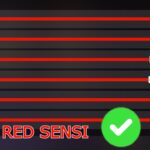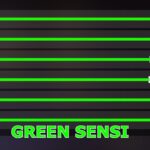How to Adjust the Perfect Sensitivity in Free Fire for Precise Shots

In the fast-paced world of Free Fire, one of the most important aspects of gameplay is your sensitivity settings. Many players overlook the significance of fine-tuning their sensitivity, but those who take the time to get it just right often find that it gives them a crucial edge in combat. So, how can you adjust your sensitivity to hit those precise shots and come out on top in every firefight? Let’s dive in.
- What is Sensitivity in Free Fire?
- Understanding Your Playstyle
- Why Sensitivity Settings Vary for Different Players
- Basic Sensitivity Settings Explained
- How to Find Your Ideal Sensitivity
- Optimizing Sensitivity for Different Weapons
- The Role of Movement in Sensitivity
- Common Mistakes When Adjusting Sensitivity
- Pro Tips for Sensitivity Adjustments
- How to Practice with New Sensitivity Settings
- How to Adapt Sensitivity for Different Game Modes
- Sensitivity for Headshots
- Tweaking Sensitivity for Maximum Performance
- Conclusion
What is Sensitivity in Free Fire?
Sensitivity in Free Fire refers to how quickly your screen reacts to your touch when aiming, moving, or shooting. The right sensitivity setting helps you control your movements and aim with greater accuracy, especially during intense firefights.
Types of Sensitivity Settings
- General Sensitivity: Affects your overall movement when you’re not scoping in. It helps you turn quickly and assess your surroundings.
- Red Dot Sensitivity: Adjusts the sensitivity when using a red dot sight, crucial for mid-range combat.
- 2x, 4x, and AWM Scope Sensitivity: These control how your aim responds when using various scoped weapons, essential for sniper shots.
- Free Look Sensitivity: This setting is for when you want to freely look around while moving.
Understanding Your Playstyle
Your playstyle has a big impact on how you should adjust your sensitivity. If you’re an aggressive player who likes to rush enemies, you might want a higher sensitivity for quick turns and fast responses. On the other hand, a more defensive or strategic player might prefer lower sensitivity for better precision at longer ranges.
TE PUEDE INTERESAR: Configuración Óptima de Free Fire: Secretos para Mejorar tu Rendimiento
Configuración Óptima de Free Fire: Secretos para Mejorar tu RendimientoWhy Sensitivity Settings Vary for Different Players
Everyone’s sensitivity settings are different because of two key factors: the device they’re playing on and personal preferences. Devices with higher frame rates and better touch response often allow for higher sensitivity settings, while slower devices might require lower sensitivity to maintain control.
Additionally, some players are simply more comfortable with slower or faster sensitivity depending on their reaction times and how they naturally aim.
Basic Sensitivity Settings Explained
Let’s break down the key sensitivity settings in Free Fire:
TE PUEDE INTERESAR: Guía Completa para Optimizar Free Fire en Dispositivos de Gama Baja
Guía Completa para Optimizar Free Fire en Dispositivos de Gama Baja- General Sensitivity: Controls how fast you can turn and look around without using any scope. Higher sensitivity lets you move quickly, but can be harder to control.
- Red Dot Sensitivity: Used when aiming with a red dot sight. You want this to be responsive, but not so fast that you overshoot your target.
- 2x Scope Sensitivity: Ideal for medium-range engagements. A slightly lower setting can help you lock onto targets better.
- 4x Scope Sensitivity: Critical for long-range fights. The slower the sensitivity, the more precise your aim, which is vital for hitting distant targets.
- AWM Scope Sensitivity: Sniper sensitivity should be the slowest, allowing for the most precise adjustments.
- Free Look Sensitivity: This is mostly a personal preference, but higher sensitivity can help you scout your surroundings faster.
How to Find Your Ideal Sensitivity
To adjust sensitivity settings to perfection, it’s all about testing. Start with the default settings and gradually increase or decrease them based on how your aim feels during gameplay. For instance, if you find that you’re overshooting your targets with a red dot, lower the sensitivity slightly and test again.
Optimizing Sensitivity for Different Weapons
Different weapons require different sensitivity settings. Close-range weapons like SMGs benefit from higher sensitivity because you need quick movement, while snipers require lower sensitivity for precise long-range shots.
The Role of Movement in Sensitivity
Balancing movement with your sensitivity is key. If your movement speed is fast, but your aim is too slow, you won’t be able to react in time during fights. Similarly, if your sensitivity is too high, it might throw off your movement and make your aim wobbly.
TE PUEDE INTERESAR: Las Mejores Configuraciones de Sensibilidad en Free Fire para Cada Tipo de Jugador
Las Mejores Configuraciones de Sensibilidad en Free Fire para Cada Tipo de JugadorCommon Mistakes When Adjusting Sensitivity
One of the most common mistakes players make is overcompensating. If your aim feels off, try making small adjustments rather than big jumps. Another mistake is ignoring your device’s capabilities. If your phone doesn’t support high frame rates, you might struggle with higher sensitivity settings.
Pro Tips for Sensitivity Adjustments
Learning from pro players can give you a great starting point for adjusting your sensitivity. Many pros post their settings online, but remember that what works for them might not work for you. The key is to make small, incremental changes rather than large ones.
How to Practice with New Sensitivity Settings
The best way to practice is by creating a custom room or going into the training grounds. Spend time adjusting your sensitivity and then test it in actual matches. Take note of how your aim and movement feel over time and continue tweaking until you find the sweet spot.
TE PUEDE INTERESAR: Cómo Conseguir el Pase Booyah Gratis en Free Fire
Cómo Conseguir el Pase Booyah Gratis en Free FireHow to Adapt Sensitivity for Different Game Modes
Your sensitivity settings might also need to change depending on the game mode you’re playing. For instance, in Clash Squad, where the action is faster-paced and close quarters, higher sensitivity might be more useful. For Battle Royale, where engagements often happen at longer distances, lower sensitivity is better for sniping and mid-range fights.
Sensitivity for Headshots
If you want to land more headshots, sensitivity is crucial. Lowering your sensitivity slightly can help you control your aim and land more accurate shots to the head.
Tweaking Sensitivity for Maximum Performance
It’s essential to fine-tune your sensitivity based on your device’s performance. You might also want to consider external factors like using finger sleeves or screen protectors, which can affect how your screen responds to your touch.
TE PUEDE INTERESAR: Aimlock Settings
Aimlock SettingsConclusion
Finding the perfect sensitivity settings in Free Fire takes time and patience. Start with a base setting and adjust incrementally as you become more comfortable with your gameplay. Remember that your settings may change over time as you develop new skills or switch devices. Keep practicing, stay patient, and you’ll soon find yourself landing more precise shots and climbing the ranks.
SI NECESITAS AYUDA, UNETE A NUESTRO GRUPO DE WHATSAPP AQUÍ

Deja una respuesta